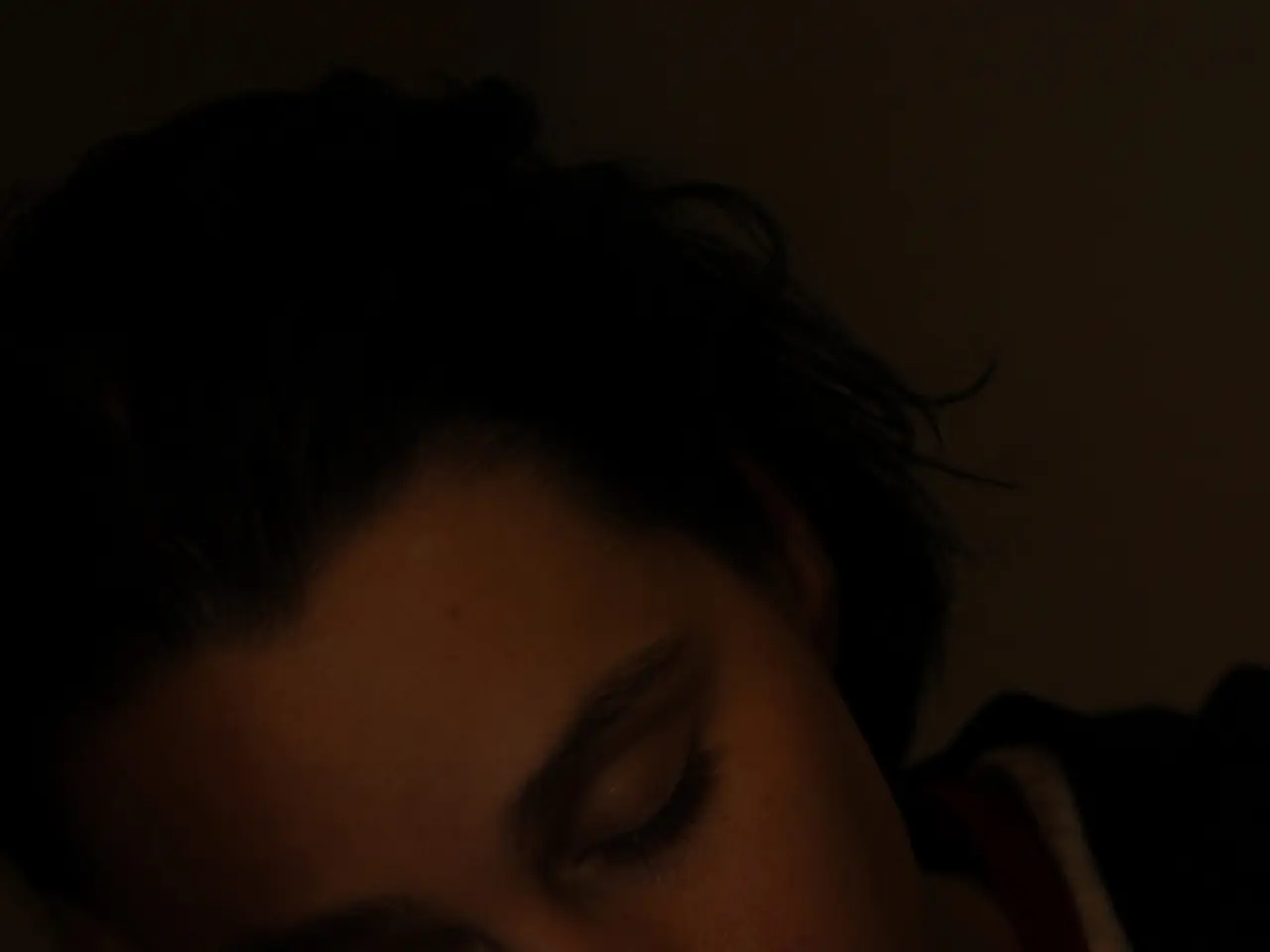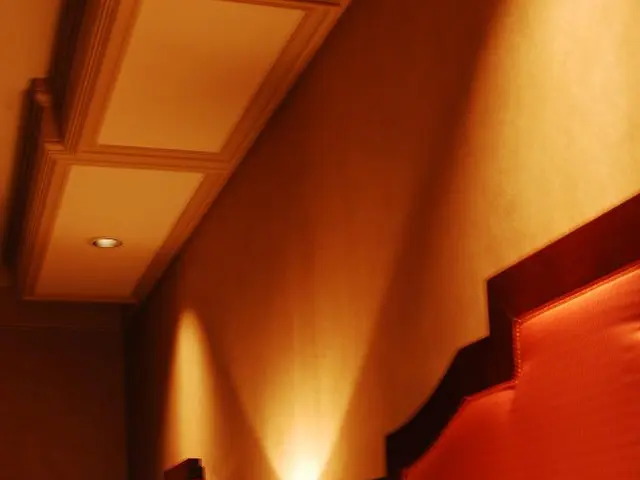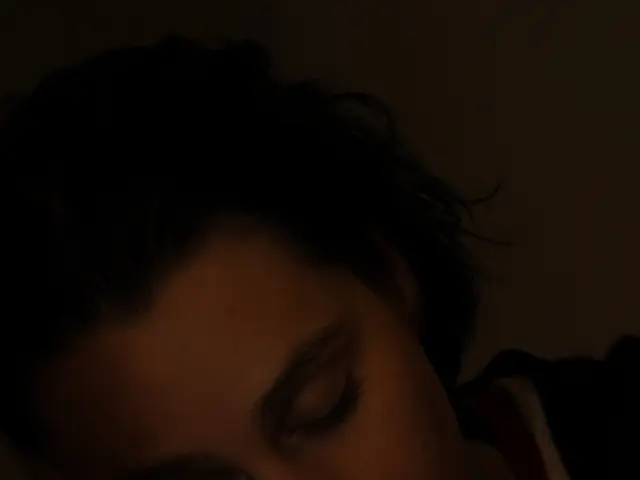Sleeping Direction Based on Expert Recommendations, Revealed
Let's Shed Light on the Best Direction to Nap Like a Pro
Plenty of people out there bark about the bad rap sleeping in the north direction gets. Some claim the opposite. But how do you figure out the top-notch direction to kip for a sound slumber? Scientific research drops some hints, and we're here to decode it for you. Learn which direction to doze off in for a stellar sleep below.
What's the Top Pick Direction to Doze Off According to Science?
It's common knowledge that humans used to follow the Earth's magnetic field as navigational clues, mostly for hunting munchies [1]. And yet, there's no scientific evidence pointing to the ideal direction to snooze in. But some researchers suggest that catnapping toward the south position could trigger lower blood pressure, heart rate, and stress hormone levels [2].
People with sleep disorders, like snoring like a chainsaw and waking up repeatedly, might find solace in choosing the most comfortable sleep position.
advantages of aligning your head with Earth's Magnetic Field
When you align your sleeping position according to the magnetic fields, you might experience these perks:
- Assists in syncing your body's internal clock (circadian rhythm)
- Boosts your overall well-being
- Enhances your body's reactions to natural magnetic forces
Giving this strategy a go could help you dodge your sleep troubles and catch some quality dreamland time.
Animal Behavior and Anecdotal Evidence
Animals tend to line up their bodies in the north-south direction when they dig in for a meal or some restful time. This neat trick is down to a magnetic "compass" in their noggins [3]. For humans, doing the same trick, aka napping in the same direction as our animal pals, could possibly help us catch some better zzz's.
You can also consider tweaking your position for slumber based on Vastu Shastra or Feng Shui to perhaps boost your restorative doze.
Which Directions to Avoid Avaoiding Sleeping In?
Coming at it from a scientific perspective, there's no sleeping direction that's considered a no-no to catnap in. But in many cultures, the north direction is a big old no-no as it opposes the Earth's electromagnetic field. Catching some shut-eye with your Melanie Griffith hitting the north could potentially stir the pot, making you feel more restless and stressed.
Does the Direction You Doze Off Impact Your Sleep Quality?
Manipulating the direction in which you nap can affect the quality of your sleep. Just remember that the top-notch sleeping direction might vary depending on traditional beliefs, whispered wisdom, and cultural trends. Robust research suggests that napping with your head to the south and feet to the north could be your ticket to the Land of Nod [2].
Someünique benefits of nodding off in a specific direction include:
is it a smart idea to sleep in the east-west direction?
The east-west direction is a smart pick for a peaceful shut-eye. Some people say that dozing off with your kisser facing eastward could improve your memory and focus. Moreover, it's said to foster positive vibes and good health, making it a popular option for people on the hunt for relaxation and clarity.
Geomagnetic Influence on Sleep Quality
Wondering about the geomagnetic impact on your shut-eye? Diving deeper into the science behind Earth's electromagnetic fields could shed light on your sleep quality dreams. While the effects of these factors on sleep quality are not yet 100% confirmed, some theories suggest that napping in specific directions, like facing south, might lead to better rest.
In the world of Feng Shui and Vastu Shastra, sleep direction suggestions are based on the flow and balance of energy inside your coop. The idea that Earth's magnetic poles tug on the human body, with the positive pole to the north and the negative pole to the south, adds a layer of mystery to the debate.
To get the best snooze, it might pay off to mingle these geomagnetic influences with other sleep enhancers that work best for you.
Tips for Setting Up a Sleep-Friendly Cave
To ensure your bedroom is ready for rest and relaxation, optimize your pad for comfort and serenity.
Here are some pointers to help you whip your sleep lair into shape:
- Regulate your bedroom's temperature, dim the lights, and tuck in any noisy distractions to promote better sleep.
- Use blackout curtains or a sleep mask to keep the dreamland peace.
- Contemplate wearing earplugs or a white noise machine to drown out any disturbances.
- Invest in a comfy mattress and supportive pillows that align with your sleeping style.
Transforming your domicile into a cozy slumber den could work wonders for your sleep quality. Keep in mind that little changes in your sleep hygiene and environment can lead to improved sleep and boost your overall health.
Conclusion
Ultimately, the ideal sleeping direction is down to personal taste and comfort. Sciences hasn't landed on a clear winner yet, but side sleeping with the right support is widely favored for better sleep and health.
So, if you fancy experimenting, give the north and south directions a go (excluding north from some traditions). Keep in mind that the key to a good night's sleep is finding a comfortable position that helps you catch some zzz's. Also, why not give the ShutEye® app a twirl? It's designed to help you track your sleep patterns and dial in personalized sleep solutions. Happy dreaming!
- According to some scientific research, sleeping towards the south direction could potentially lower blood pressure, heart rate, and stress hormone levels.
- People with sleep disorders like sleep apnea might find relief in choosing the most comfortable sleep position, including aligning with the Earth's magnetic fields for potential benefits such as syncing the body's internal clock, boosting overall well-being, and enhancing reactions to natural magnetic forces.
- In the world of traditional practices like Vastu Shastra or Feng Shui, sleep direction suggestions are based on the flow and balance of energy inside one's bedroom, with some theories suggesting that napping in specific directions might lead to better rest.
- Transforming your bedroom into a cozy slumber den by optimizing for comfort and serenity can improve sleep quality, and little changes in your sleep hygiene and environment can lead to better sleep and boost your overall health.








